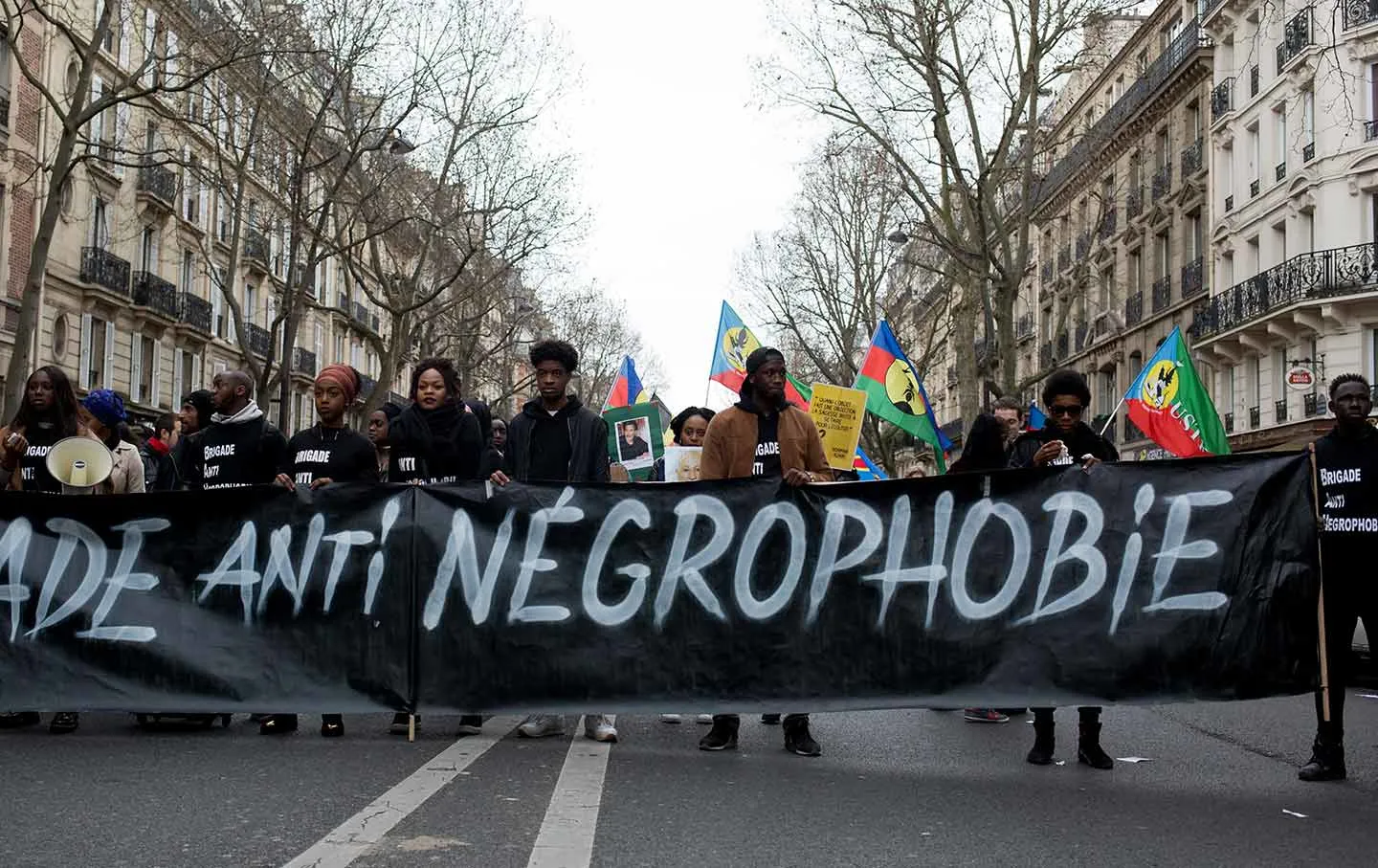In The Nation, Karina Piser writes about young activists in France who are critiquing and helping to change entrenched beliefs about race and identity in the country. As Piser explains, the French tradition views “Frenchness” as the primary and unifying collective identity. Talk of other forms of identity—such as African or Muslim—is often seen as divisive or even racist. But young activists, many of them of African and Middle Eastern descent, are challenging this one-dimensional view of identity and forcing France to reckon with its colonial past. Here’s an excerpt from the piece:
The incident came at a time when the French attitude toward race—and racism—is coming under increasing scrutiny both at home and abroad. France likes to see itself as colorblind, and aspires to be a universal community of citizens in which French identity trumps any other allegiances. As in several other countries in Europe, racial and religious statistics are illegal; in 2013, France stripped its laws of the term “race,” which last month the parliament voted almost unanimously to remove from the Constitution, arguing that race is a contrived biological construct with dark historical roots. Racism, accordingly, might exist, but only as an individual phenomenon; there are racists, but no structural racism—a few bad apples, not a set of political, social, and behavioral norms that hierarchize based on skin color …
The French universal ideal clashes with an ugly reality: Police stop blacks and Arabs 20 times more often than whites, stop-and-frisk is routine practice, and a pattern of police brutality has emerged, setting off mass protests in recent years. Discrimination in the workplace and housing market is rampant, and the nation’s prison population is estimated to be overwhelmingly Arab and black—though the ban on racial statistics makes the exact population impossible to measure. Those are just a few examples of the structural biases that have inspired young activists to draw attention to notions like white privilege.
Image via The Nation.
